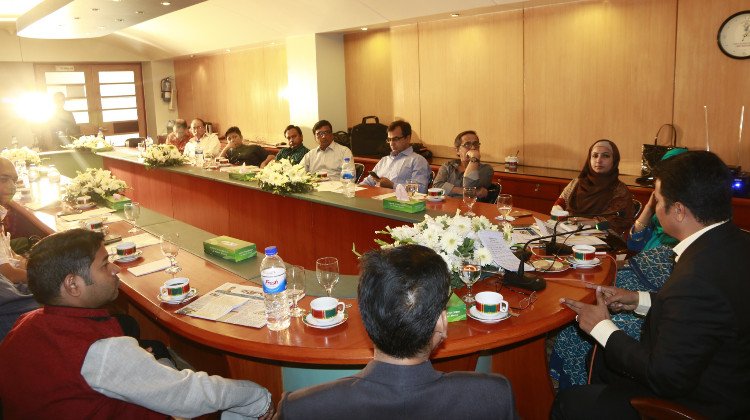Follow Those Who Do Not Expect Anything in Return – A Reflection on Surah Yaseen
Category :
Islam

Author ::
Salzar Rahman Sabu
Feb 17, 2026
visibility
418 Read
Follow those who ask no reward of you and are rightly guided.”
[Surah Yaseen: 21]
We must deeply reflect on this verse of the Holy Qur'an. Here, Allah identifies the act of not seeking any return as a unique sign of being on the path of guidance—on the straight path (Sirat al-Mustaqeem). What kind of return is meant here? Since prehistoric times, the practice of barter has existed in trade, which later evolved into using gold coins and now, currency.
Allah is essentially saying: those who do religious work in exchange for compensation—whether money or material gain—are not to be followed. They are clearly in misguidance (dalalah). How can someone who is themselves misguided guide others to the path of truth?
In our society, there exists a class of people who are professional religionists—those who earn their livelihood from religious work. While this might sound harsh, this tradition has been ongoing for centuries.
Typically, they lead prayers in mosques, act as muezzins, speak at religious gatherings (waaz-mahfils), perform supplications, conduct funerals, officiate marriages, etc., all as a source of income. One might ask: if teaching, driving a rickshaw, or working a 9 to 5 job is a valid profession, then why is leading prayer, calling the azan, or giving sermons considered blameworthy?
These acts, in and of themselves, are virtuous, but if done in exchange for money, they become acts of religious commercialization. In a society where religious acts require monetary compensation, religious practice itself comes to a halt when there is no money.
Suppose a person tasked with delivering God's message becomes beholden to financial gain. In that case, he cannot protest against social injustices, cannot oppose a mosque committee president who engages in usury, cannot speak out against extortionist leaders.
In such a case, religion becomes helpless before wealth. That is why taking compensation for religious work is haram. This prohibition comes from Allah Himself. No prophet ever took payment for preaching the religion. Each of them was involved in some worldly profession. Our beloved Prophet Muhammad (peace be upon him) was also a businessman, but never a religious merchant.
Yes, a religious merchant—this class has now grown substantially in our society. Especially in waaz-mahfils where, under contractual agreements, they collect large sums from the audience. In many places, speakers won’t even show up unless paid in advance. If a speaker dares to voice a small objection against the event organizers, he is physically assaulted or humiliated on stage.
This cannot be the fate of a respectable religious scholar. These so-called scholars are actually religious businessmen. Their speech is often more vile than that of ordinary, decent people. In the age of social media, people mock and ridicule them. About such people, Allah has warned us in the Qur'an:
“Among them is a group who distort the Book with their tongues so that you may think it is from the Book, but it is not from the Book. They say, ‘This is from Allah,’ but it is not from Allah. And they speak lies against Allah knowingly.”
[Surah Aal-Imran: 78]
This is exactly how the religious professionals of our society recite scripture with twisted tongues, as though they are conveying divine messages. But in truth, they are presenting a completely distorted version of Islam, originally corrupted by their predecessors, now repackaged with emotive tone and expressions in the name of Allah.
The responsibility of the prophets was to distinguish between right and wrong, truth and falsehood, and to struggle against injustice alongside those who followed the righteous path. Naturally, after believing in a prophet, every believer is entrusted with the same divine responsibility. Allah declares in the Qur'an:
“You are the best nation produced [as an example] for mankind. You enjoin what is right and forbid what is wrong and believe in Allah.”
[Surah Aal-Imran: 110]
But can these so-called scholars and religious merchants truly separate truth from falsehood and fight against injustice? Never. Because they have sold themselves to a certain class of people. It has always been this way: when rulers commit injustices, they create laws to justify those actions and protect themselves.
These laws are drafted by lawmakers and defended by intellectuals. In earlier times, when religion governed the state, even religious doctrines were tampered with to support rulers’ wrongdoings. This was done by religious scholars of the time, who legitimized the ruler’s sins in the name of Shari’ah. What we see today as “Islam” is only partly the divine revelation; the rest is crafted by religious merchants. Sultans and kings used hired scholars—who, out of greed for rank and wealth, misled the people about Islam. That same class still exists today—those who conveniently issue fatwas and interpretations according to the needs of state policymakers.
One very common form of religious commercialization is the role of salaried mosque imams. It is now a widely accepted norm that the wealthy and influential (many of whom are corrupt) become mosque committee members.
No one questions their source of income—their wealth and influence are considered qualifications. The real objective here is economic. Imams work under the authority of these committees. Their domain is confined within the mosque walls. They’re summoned for funerals, inaugurations, circumcisions, marriages, and animal slaughter—but have no involvement in real-life societal affairs.
The Imamate Today:
Due to the influence of the Western Christian education system and way of life, our society now has two types of leaders: religious and secular.
Today, in mosques, the so-called religious imam—semi-educated and earning a small salary—leads the prayer while the so-called secular (political and social) leaders stand behind him and obey his commands during prayer. Once the prayer ends, these secular leaders don’t even glance at the imam. Because they know his worth does not exceed his small salary—he has no social value or authority.
If that imam dares to offend or disobey any of them, he immediately loses his position. Blind imitation and obedience to Western Christian models have brought us to a point where even their Christian priests hold more influence over their communities than our imams.
No matter how corrupt or immoral the committee members may be—whether involved in usury, drug trade, bribery, or shady politics—our imams cannot speak out against them.
This is how religion is sold for personal interest. When the voice of justice is silenced in exchange for gain, religion is defeated. And when the pulpit of religion fails to speak against immorality, society quickly loses its faith.
Once a nation loses the courage, resolve, and capacity for ideological struggle, imbalanced Sufism introduced an alternative: jihad against the self (nafs). T
Today, Jihad-e-Akbar is equated with the struggle against the nafs. The proponents of this idea cite only three hadiths—reported by Ibn Najjar, Dailami, and Khatib—all of which scholars unanimously consider weak (da'if). Renowned muhaddith Hafiz Ibn Hajar al-Asqalani even declared these hadiths to be not hadiths at all, but mere Arabic proverbs.
[Tashdid al-Kabais – Hafiz Ibn Hajar]
.
For centuries, the promotion of this version of Jihad-e-Akbar—contradictory to Allah’s declaration—has caused the entire Muslim nation to lose its character of resistance and protest. As a result, even this invented jihad against the nafs could not protect them from defeat, slavery, or moral decline.
Images Related to this Post
Tags:
- Surah Yaseen
- Islamic Guidance
- Religious Work
- Misguidance
- Imam Role
- Religious Commercialization
- Jihad
- Truth and Falsehood
- Religion and Society
- Prophet Muhammad
- Quranic Teachings
- Ethical Leadership
- Justice in Islam
- Spiritual Struggle
- Religious Scholars
- Sufism
- Religious Corruption
- Quranic Verses
- Islamic Scholars
Related Post
Search
Popular Post
Recent Post
Tags
Hezbut_Tawheed
Imam Hossain Mohammad Salim
Bangladesh Violence
Religious Extremism
Mob Attacks
Human Rights Violations
Minority Persecution
Rangpur Attacks
Jamaat-E-Islami
Hefazat-E-Islam
Tawheed
Muslim Ummah
Islamic Unity
Shirk
Kufr
Islamic Revival
Kalima-E-Tawheed
Obedience To Allah
Deen-Ul-Haq
Hizb-Ut-Tawheed
Ram Temple
Third Temple
Ayodhya
Jerusalem
Religious Politics
Babri Masjid
Al-Aqsa
Zionism
Hindutva
Netanyahu
Religious Hate
Muslim Unity
Noakhali Conference
Imam Salim
Islamic Movement
Shahidi Jame Mosque
Ht Members Conference
Bangladesh Religious Persecution
Islamic Reform Movement
Extremist Violence
Human Rights Bangladesh
Sonaimuri Noakhali Attack
Political Extremism Bangladesh
Faith-Based Violence
Eid Al‑Fitr
Zakat Al‑Fitr
Ramadan Charity
Islamic Social Justice
Community Harmony
Bangladesh Poverty
Islamic Economy
Sadaqah
Fitrana
Eid Unity
Arab History
Islamic Governance
Caliph Umar
Social Transformation
Women’s Rights In Islam
Justice In Islam
Political Systems
Islam Vs Democracy
Islam And Knowledge
Islamic System
Prophet Muhammad
Farewell Sermon
Hajj
Global Peace
Human Rights In Islam
Dhul-Hijjah
Arafat Sermon
Islam Vs Un Charter
Unemployment In Bangladesh
Education System Failure
Educated Unemployment
Jobless Graduates
British Education Legacy
Youth Crisis
Hezbut Tawheed Views
Bids Report
Ssc To Masters Job Race
Middle Class Dilemma
Kerani Mentality
Excessiveness In Religion
Religious Distortion
Overinterpretation Of Islam
Misguided Enthusiasm
Warnings Of The Prophet
True Islam
Spiritual Clarity
Abandoning The Mission
Chormonai Pir
Desherpotro
Islamic Reform
Persecution In Bangladesh
Religious Violence
Jamaat-E-Islami Attacks
Islamic Truth Movement
Women And Knowledge
Islamic Feminism
Gender Roles
Social Awareness
Muslim Women
Female Empowerment
Islamic History
Qur’anic Guidelines
Obeying Allah’s Commands
Islam And Suffering
Workers' Rights In Islam
Labor Justice
May Day Islam
Islamic Society Model
Chashirhat Development
Imam Hossain Mohammad Selim
Islamic Brotherhood
Fair Wages
Islamic Military Strategy
Tawheed-Based State
National Security
Qur’anic Warfare
Mujahideen
Peacekeeping
Modern Islamic Army
Military Training
Ummah Defense
Sharia Governance
Southasia
Extremism
Bangladesh
India
Pakistan
Myanmar
Jihad
Islamophobia
Radicalism
Resistance
Conflict
War
Terrorism
Proxywar
Bjp
Hasina
Ghazwa
Kashmir
Rohingya
Arsa
Militancy
Ideology
Unity
Awareness
Injustice
Arms
Geopolitics
Gaza
Hypocrisy
Taliban
Alqaeda
Afghanistan
Syria
Iraq
America
China
Russia
Media
Violence
Oppression
Nationalism
Muslim
Islam
Justice
Youth
Leadership
Sovereignty
Hezbuttawheed
Mosque
Governance
Society
Administration
Education
Military
Economy
Women
Culture
Law
Quran
Hadith
Prayer
Madinah
Baytalmal
Amir
Discipline
Khutba
Transparency
Spirituality
Training
Morality
Ummah
Prophet
Sharia
Community
Peace
Development
Security
National
Khutbah
Sabr
Zakat
Sufism
Equality
Mosquesystem
Participation
Aqiqah
Accountability
Tradition
Modernity
Ummati Muhammad
Unity In Islam
Sunnah
Islamic Teachings
Muslim World
Deen Of Islam
Security Crisis
National Unity
Political Unrest
Military Vulnerabilities
Strength
Solidarity
Disunity
Muslim Nations
Women's Rights
Rufaidah Panni
Eid Congregation
Islamic Women Empowerment
Social Justice
Equality In Islam
Momen
Kafir
Mushrik
Allah's Laws
Faith In Islam
Belief In Allah
True Believers
Kalimah
Shariah
Justice And Peace
Political Parties
Multiparty Democracy
Political Factionalism
Islamic Political System
Democracy Vs Islam
Secularism
Political Ideologies
Islamic Law
Political Vision
Governance Without Parties
Political Stability
Islamic State
Shura System
Islamic Perspective
Women’s Reform Commission
Family Law
Inheritance Law
Labor Recognition
Shariah Law
Gender Equality
Religious Opposition
Feminist Movement
Human Rights
Political Debat
Arab Society
Islamic Economic Justice
Military Transformation
Education In Islam
Judicial Independence
Accountability In Islam
Islam And Democracy
Societal Transformation
Governance Systems
Surah Yaseen
Islamic Guidance
Religious Work
Misguidance
Imam Role
Religious Commercialization
Truth And Falsehood
Religion And Society
Quranic Teachings
Ethical Leadership
Spiritual Struggle
Religious Scholars
Religious Corruption
Quranic Verses
Islamic Scholars
Prophet Muhammad (S.a.w)
Military Nation Of Islam
Sahabah
Lost Legacy
Ummah Of Muhammad
Jehad
Qetal
Islam And Violence
Islamic Leadership
State Vs Individual Struggle
Allah's Help
Islamic Reflection
Divine Support
Muslim World Crisis
Quran Teachings
Islamic Awakening
Qurbani
Bangladesh Politics
Eid Ul Adha
Islamic Sacrifice
Bangladesh Crisis
Global Conspiracy
Sacrifice
Labour Rights
Employment Crisis
Bangladesh Economy
Wage Gap
Inflation
Unemployment
Education Reform
Job Creation
Income Inequality
Post-Pandemic Economy
Eid-Ul-Azha 2025
Bangladesh Eid Congregation
Eid Prayer 2025
Women's Participation
Peace & Justice
Bangladesh Religious Events
Eid-Ul-Azha Message
Khilafah
Global Oppression
Islamic Festivals
Quranic Guidance
Spiritual Sacrifice
Ibrahim's Sacrifice
Eid Mubarak
Peace Through Tawheed
Women's Reform Debate
Bangladesh Women's Rights
Hezbut Tawheed Position
Islamic View On Women's Rights
Legal Reforms Bangladesh
Family Law Reform
Inheritance Rights
Sharia Law Bangladesh
Women's Equality
Western Influence
Religious Groups Debate
Gender Equality Islam
Islamic Social Solutions
Women's Dignity In Islam
Islamic Solutions
Beyond Politics
Labor Rights
Class Struggle
Economic Solutions
May Day Analysis
Economic Justice
Divine Accountability
Global Economic Crisis
Capitalism Vs Islam
Socialism Vs Islam
Savar Attack
Ishwardi Attack
Religious Fanaticism
Political Manipulation
Islamic Extremism
Government Response
Democratic Threats
Islamic Teachings Misuse
Radical Ideology
Communal Conflict
Radical Groups In Bangladesh
Terrorism In Bangladesh
Islamic Rights
Mosque Access
Eid Prayer
Muslim Women Empowerment
Prophet Muhammad Teachings
Women In Mosques
Women Rights In Islam
Gender Equality In Islam
Masjid An-Nabawi
Women's Role In Islam
Misconceptions About Women
Women Participation In Mosque
Eid Khutbah 2025
Islamic Sermon
Hossain Mohammad Selim
Bangladesh Eid
Qurbani Meaning
Women In Islam
Rufaydah Panni
Islamic Congregation
Female Participation In Eid
Chashirhat Eid
Palestine Solidarity
Eid Prayer Bangladesh
Women In Eid
Kushtia Rally
Gaza Crisis
Muslim Persecution
Bangladesh News
Peace Movement
Humanity
Divine Law
Social Reform
Religious Harmony
Truth
Call To Action
Palestine
Dajjal
Islamic Struggle
Mohammad Bayazid Khan Panni
Genocide
Oic
Protest
National Press Club
Rangpur Attack
Religious Reform
Karwan Bazar Protest
Terrorist Attack
Law And Order Failure
Emamht
Ht_In_Brief
Pabnaattack
Justiceforvictims
Humanchain
Politicalviolence
Legalreform
Endimpunity
Bangladeshjustice
Hezbuttawheedleaders
Demandjustice
Pabnapressconference
Policeinaction
Proposedgovernancesystem
Islamicstatesystem
Allahslaw
Economicreform
Educationreform
Capitalismcritique
Dhakaevent
Purposeofcreation
Humancreation
Khalifah
Allahsplan
Divineguidance
Adamsstory
Islamicteachings
Peaceandjustice
Sovereigntyofallah
Lailahaillallah
Islamiccreed
Aqidah
Islamicfaith
Iman
Deen
Peaceinislam
Purposeofislam
Beliefsystem
Faithandworship
Why
Escalate
Mohammad Bayazeed Khan Panni
Hossain Mohammad Salim
Religious
Extremist
Interfaith
Situation
Ultimatum
Threats
Extremist Attack
Attack
Movement
Barakat Hossain Osama
United Kingdom
Conservative Party
Donald Trump
Secular Leadership
Fanatical Populace
Fanatical
Populace
Religion
Extensive Damage
Catastrophic Flooding
High School
Urgent Help Needed
Devastated
Allah
Modus Operandi
Messenger
Believer
Messenger Of Allah
People
Human
Jame Mosque
A Cornerstone
Cornerstone
A Just Society
The Establishment
Establishment
History
Messenger Muhammad
Simple And Straightforward
Who Made
The Simple
Complex
Way Of Life
Jannah
Way To Jannah
Civilization
Religious Figures
Survive
Politics
Worship
Establish
Goals And Objectives
System Of Life
Money
Tolerance
Madness
Mo'men
Today’s
Educated
Needs
Corruption
British
Government
Democracy
Communism
Socialism
Political
Secular Education
Responsible
The Reign
Hindu
Terrifying
Slavery
Jewish Conspiracy
The Protocols Of The Elders Of Zion
Politician
Give And Take
Education System
European
Population
Mentality
Slave
Preface
Children
The Quran
The Miracle
Creator
The Creator
Creation Of Man
The Creation Of Man
Premise
First Words
Aqida
The Programme
The Messenger
Mankind
Actual
Concept Of Islam
Crossroads
Mojeza
The Call
Panni
The Author
Qur'an
Process
The Process
A Person
Tabook
The Special Three
Special
The Tabook
The Ahzab
Ahzab
Khandak
The Uhud
Uhud
The Badr
Badr
Ebadat
Ma'bud
Vicegerent
Worshipper
Aqaed
The Reasons
Reasons
Reason
Adam
Eblis
Khalifa
Angels
Adam And Eve
Adam And Hawa



















Leave a Comment